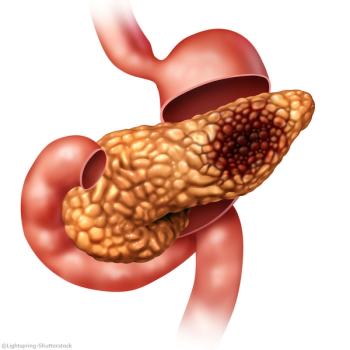
Oncology NEWS International
- Oncology NEWS International Vol 7 No 11
- Volume 7
- Issue 11
Gemzar Gets Indication for First-Line Treatment of NSCLC
INDIANAPOLIS--Eli Lilly and Company’s Gemzar (gemcitabine) has received FDA approval for use as first-line treatment of inoperable, locally advanced, or metastatic non-small-cell lung cancer (NSCLC) in combination with cisplatin (Platinol). The agent was previously approved as first-line, single-agent therapy of locally advanced or metastatic pancreatic cancer
INDIANAPOLIS--Eli Lilly and Companys Gemzar (gemcitabine) has received FDA approval for use as first-line treatment of inoperable, locally advanced, or metastatic non-small-cell lung cancer (NSCLC) in combination with cisplatin (Platinol). The agent was previously approved as first-line, single-agent therapy of locally advanced or metastatic pancreatic cancer.
"When left untreated, advanced lung cancer can take the lives of patients within 4 months," said Alan Sandler, MD, assistant professor of medicine, Indiana University School of Medicine, and lead investigator for the pivotal trial. "Our study showed that 39% of patients who received Gemzar plus cisplatin were still alive after 1 year, compared with only 28% of patients who received cisplatin alone."
Two randomized, multicenter trials supported gemcitabines supplemental new drug application for NSCLC. The pivotal phase III trial included 522 patients who had received no previous chemotherapy; more than two-thirds of these patients had stage IV disease.
In addition to significantly improved 1-year survival, the patients receiving gemcitabine-cisplatin had significantly longer median survival than those on cisplatin alone (9 months vs 7.6 months); a significantly higher response rate (26% vs 10%); and significantly longer median time to progression (5.2 months vs 3.7 months).
In the second trial of 135 patients with no prior chemotherapy, approximately 50% of whom were stage IV, gemcitabine-cisplatin was compared with cisplatin-etoposide. Those receiving gemcitabine had significantly higher response rates (33% vs 14%) and significantly longer median time to progression (5 months vs 4.1 months). Survival was not an endpoint for this trial, but results showed that 1-year survival probability was comparable between the two groups.
In the pivotal study, myelosuppression was the most common severe side effect and, as expected, occurred more frequently in the combination arm. There were four possibly treatment-related deaths with gemcitabine-cisplatin, three from myelosuppression. No such deaths occurred on the cisplatin-alone arm.
Other commonly reported side effects of the gemcitabine-cisplatin combination included nausea, vomiting, and alopecia. Kidney and sensory dysfunctions were also reported, but serious events were uncommon.
Articles in this issue
over 27 years ago
Vinorelbine/Cisplatin Improves Survival In Advanced NSCLCover 27 years ago
Centers Selected for STAR, Study of Tamoxifen and Raloxifeneover 27 years ago
HDC/PBSC for Advanced Breast Cancer Debatedover 27 years ago
New Programs Aim to Improve Home Care Servicesover 27 years ago
Breast Cancer Patients Sought for Study of Premature Menopauseover 27 years ago
Study Update Shows Improved Survival With Anastrozoleover 27 years ago
New Colon Cancer Mouse Model First to Mimic Human Diseaseover 27 years ago
Best Use of Breast Cancer Genetics Presents Clinical Challengeover 27 years ago
Families Share Pleasure and Pain at The Marchover 27 years ago
Panel Lists 13 Areas for Emphasis in NCI Breast Cancer ResearchNewsletter
Stay up to date on recent advances in the multidisciplinary approach to cancer.






































